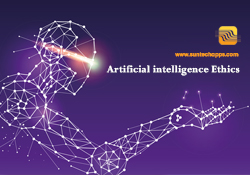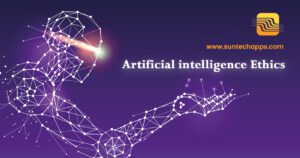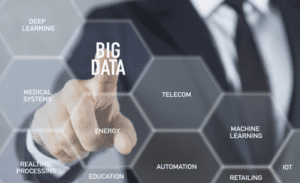Artificial Intelligence Ethics and Regulations
3 min read
small blog
In the past 18 months, we have seen a huge rise in the interest of AI development and activation. Countries are developing national strategies, and companies are positioning themselves to compete in the fourth industrial revolution. With this pervasive push of AI, comes also increased awareness and responsibility that AIs should act in the interest of a human — and to achieve this behavior is not as trivial as one might think.
And before we go into details, one might ask, why is there such a fuzz about AI ethics and regulation — why would anyone need to worry about such issues in relation to AI, isn’t it just like any other technology? There are several reasons why this topic is key to our future society and industry. One is that AI is already making decisions with a major influence on human lives, including human health, fortune and rights. Think along the lines of those AI technologies used in self-driving cars, medical diagnostics, autonomous weapons, financial advisory, automated trading and automated visa applications. All these AIs have substantial ownership of control of a process whose outcomes would normally be accounted to a human. AIs take actions and make decisions that can alter the course of a person’s life dramatically. Good ethics, regulations and guidelines on AI provide a basis for trust, and many institutes are working on establishing these and executing one these guidelines to ensure a sustainable future for this industry.

What is AI ethics, AI regulation, AI sustainability?
The convergence of the availability of a vast amount of big data, the speed and stretch of cloud computing platforms, and the advancement of sophisticated machine learning algorithms have given birth to an array of innovations in Artificial Intelligence (AI).
In theory, the beneficial impact of AI systems on government translates into improving healthcare services, education, and transportation in smart cities. Other applications that benefit from the implementation of AI systems in the public sector include food supply chain, energy, and environmental management.
Indeed, the benefits that AI systems bring to society are grand, and so are the challenges and worries. The evolving technologies learning curve implies miscalculations and mistakes, resulting in unanticipated harmful impacts.
We are living in times when it is paramount that the possibility of harm in AI systems has to be recognized and addressed quickly. Thus, identifying the potential risks caused by AI systems means a plan of measures to counteract them has to be adopted.

Public sector organizations can, therefore, anticipate and prevent future potential harms through the creation of a culture of responsible innovation to develop and implement ethical, fair, and safe AI systems.
That said, everyone involved in the design, production, and deployment of AI projects, which includes data scientists, data engineers, domain experts, delivery managers, and departmental leads, should consider AI ethics and safety a priority.
Artificial Intelligence ethics and roboethics
Artificial Intelligence ethics, or AI ethics, comprise a set of values, principles, and techniques which employ widely accepted standards of right and wrong to guide moral conduct in the development and deployment of Artificial Intelligence technologies.
Robot ethics, also known as roboethics or machine ethics, is concerned with what rules should be applied to ensure the ethical behavior of robots as well as how to design ethical robots. Roboethics deals with concerns and moral dilemmas such as whether robots will pose a threat to humans in the long run, or whether using some robots, such as killer robots in wars, can become problematic for humanity.
Roboticists must guarantee that autonomous systems can exhibit ethically acceptable behavior in situations where robots, AI systems, and other autonomous systems such as self-driving vehicles interact with humans.
AI systems: Isolation and disintegration of social connection
The capacity of AI systems to curate individual experiences and to personalize digital services has the potential of improving consumer life and service delivery. This, which is a benefit if done right, yet it comes with potential risks.
Such risks may not be visible or show as risks at the start. However, excessive automation may potentially lead to the reduction of human-to-human interaction, and with it, solving problematic situations at an individual level could not be possible any longer.
Algorithmically enabled hyper-personalization might improve customer satisfaction, but limits our exposure to worldviews different from ours might polarize social relationship.




